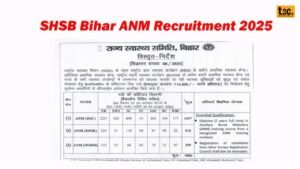Madras High Court Upholds Hindu-Only Hiring Policy for Temple-Funded Colleges

In a significant ruling, the Madras High Court has upheld the Hindu-only hiring policy for temple-funded colleges in Tamil Nadu. The court’s decision has sparked a debate about the rights of Hindu institutions to reserve jobs for Hindus only.
In this blog, we will explore the implications of the court’s ruling and what it means for temple-funded colleges and schools in Tamil Nadu.
The Case: A. Suhail vs. Arulmigu Kapaleeswarar Arts and Science College
The case was filed by A. Suhail, a non-Hindu candidate who applied for the post of Office Assistant at Arulmigu Kapaleeswarar Arts and Science College in Chennai. The college, which is funded by temple funds, rejected Suhail’s application citing its Hindu-only hiring policy.
Suhail challenged the college’s decision in court, arguing that it was discriminatory and violated his fundamental rights. Before proceeding further, take a look at: Gukesh Dommaraju: The Youngest World Chess Champion’s Historic Victory and the Finance Ministry’s Heartwarming Gesture!
The Court’s Ruling: A Victory for Temple-Funded Colleges
The Madras High Court dismissed Suhail’s petition, upholding the college’s Hindu-only hiring policy. The court ruled that temple-funded colleges are exempt from providing equal employment opportunities to people of all religions.
The court cited Article 16(5) of the Constitution, which permits appointments based on religion in certain denominational institutions. Do not miss out on reading: Ministry of External Affairs Recruitment 2024: Apply for Consultant Posts Before December 30! Check All the Details Here!
Key Highlights of the Ruling:
- Hindu-Only Hiring Policy: The court upheld the college’s policy of hiring only Hindus for teaching and non-teaching positions.
- Temple Funds: The court ruled that colleges established with temple funds are exempt from providing equal employment opportunities to people of all religions.
- Article 16(5): The court cited Article 16(5) of the Constitution, which permits appointments based on religion in certain denominational institutions.
- Section 10 of the HR and CE Act: The court highlighted that Section 10 of the HR and CE Act insists that any officer or servant appointed to carry out the purpose of the Act must be a person professing Hindu religion.
Implications of the Ruling:
The Madras High Court’s ruling has significant implications for temple-funded colleges and schools in Tamil Nadu. The ruling:
- Upholds the rights of Hindu institutions: The ruling upholds the rights of Hindu institutions to reserve jobs for Hindus only.
- Limits job opportunities for non-Hindus: The ruling limits job opportunities for non-Hindus in temple-funded colleges and schools.
- Sets a precedent for future cases: The ruling sets a precedent for future cases involving temple-funded colleges and schools.
Cast your eyes on: MPESB Group 5 Recruitment Test 2024: Apply for 1,170 Posts, Check Eligibility, Exam Schedule, and More Here!
Arguments in Favor of the Ruling:
- Protection of Hindu institutions: The ruling protects the rights of Hindu institutions to preserve their religious and cultural heritage.
- Autonomy of temple-funded colleges: The ruling upholds the autonomy of temple-funded colleges to make their own hiring decisions.
- Preservation of Hindu traditions: The ruling helps to preserve Hindu traditions and customs in temple-funded colleges and schools.
Arguments Against the Ruling:
- Discrimination against non-Hindus: The ruling discriminates against non-Hindus who are seeking employment in temple-funded colleges and schools.
- Violation of fundamental rights: The ruling violates the fundamental rights of non-Hindus to equal employment opportunities.
- Narrow interpretation of the Constitution: The ruling interprets the Constitution narrowly, ignoring the principles of equality and non-discrimination.
Conclusion
The Madras High Court’s ruling upholding the Hindu-only hiring policy for temple-funded colleges in Tamil Nadu has sparked a debate about the rights of Hindu institutions and the principles of equality and non-discrimination.
While the ruling protects the rights of Hindu institutions, it also limits job opportunities for non-Hindus and sets a precedent for future cases involving temple-funded colleges and schools.
Ultimately, the ruling highlights the need for a nuanced understanding of the Constitution and the principles of equality and non-discrimination.
Stay tuned on our website as if any official information pops up then we will update you in minutes! However, If you want all the latest updates on time then join our student community on WhatsApp!
Choose the right career for you by booking personal guidance from professionals on Mytagapp.com!







